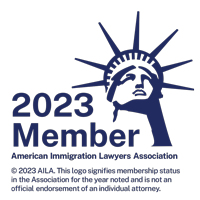Studying in the United States can be the experience of a lifetime for many people who live outside the country. The U.S. is home to some of the top colleges and universities in the world, and international students can gain both an education and hands-on work experience that can help them begin successful careers within the country and abroad.
International students who are interested in studying in the U.S. must complete a few important requirements before they can begin attending classes. These requirements include:
Find the right educational institution and degree program
There are thousands of colleges and universities in the U.S., which can make it difficult to narrow down choices. EducationUSA’s database of advising centers in countries throughout the world can help international students find schools that offer programs they’re interested in and that are certified to host foreign students.
Obtain financing to attend a college or university
Unlike U.S. residents, people who live in foreign countries aren’t eligible to receive loans, grants, or scholarship assistance from the U.S. government. However, they can receive aid from the governments of their home countries, scholarships and grants from the schools they’re interested in attending, and assistance via special exchange programs administered by the U.S. government.
Complete applications to study in the U.S.
All colleges and universities in the U.S. require that prospective and incoming students—both domestic and foreign—complete thorough applications, which often include standardized tests. In addition, they will also need to verify that foreign students have the proper credentials for the program or degree they’re applying to. The U.S. Department of Education provides resources for international students seeking recognition of foreign qualifications and those seeking English language and admission tests.
Apply for and receiving visas
There are three different types of visas that international students and exchange visitors may need to receive before arriving in the U.S.: student visas, exchange visitor visas, and visitor visas. The U.S. Department of State provides information on all three types of visas, including how to apply and the documentation required to acquire them. In addition, the U.S. Department of Homeland Security offers several tips for international students with upcoming visa appointments.
Prepare for student life in the U.S.
Culture shock is a real phenomenon for anyone who travels to a new culture, but it can be especially strong for students who may be away from family and friends for the first time. Prospective international students should take time to familiarize themselves with American culture and important information about things like finding work, training opportunities, taxes, and how to get around in the city where they’ll live.

